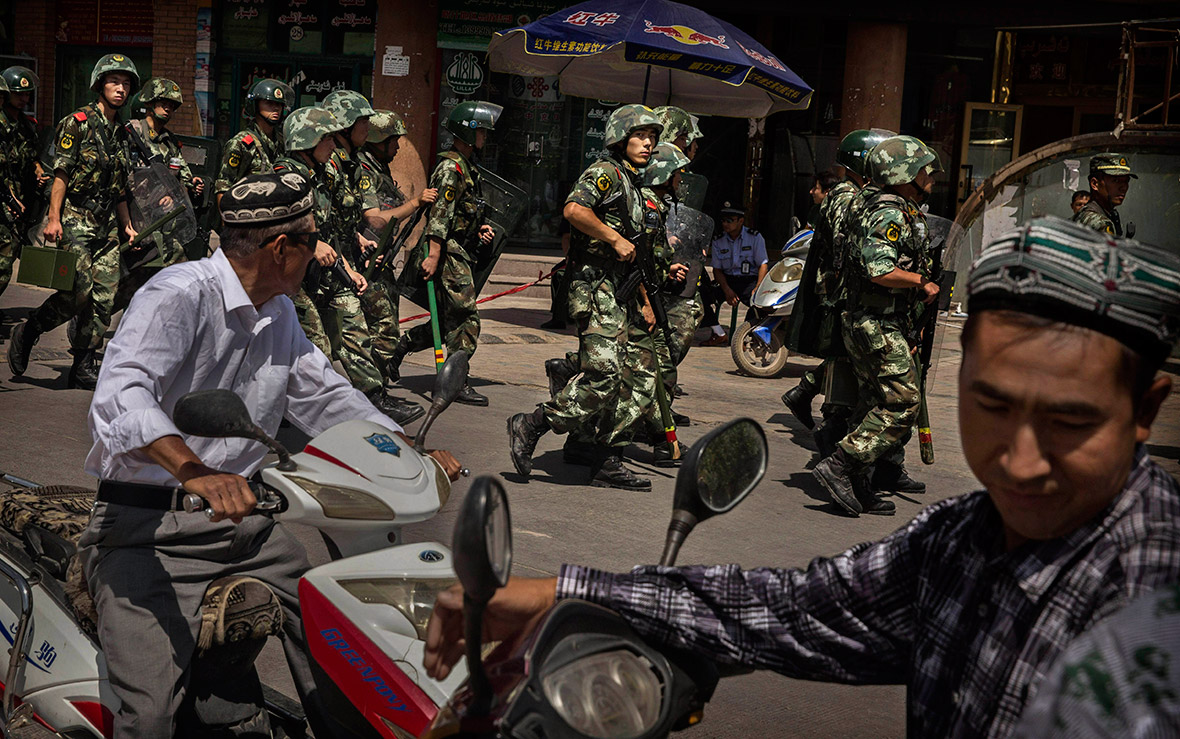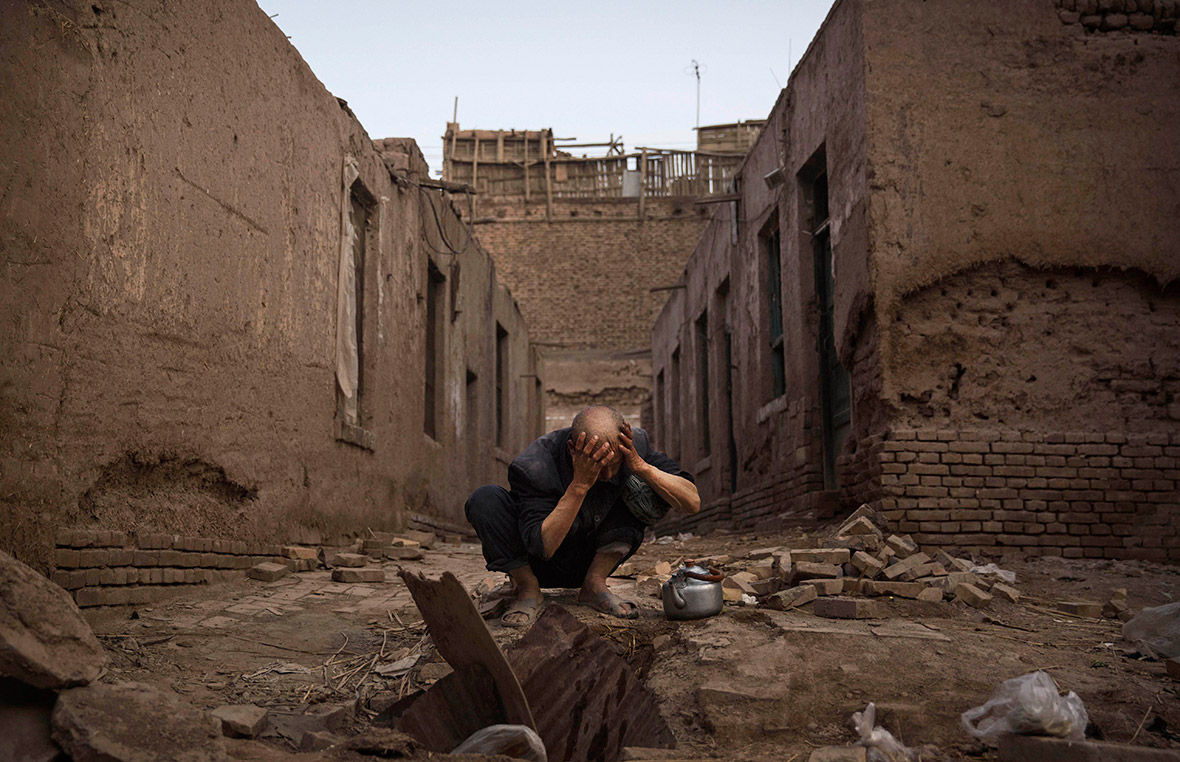Photographs Capture the Lives of Muslim Uighur Community in China's Xinjiang Region
Getty Images photographer Kevin Frayer has visited Xinjiang, an area of northwestern China home to the Muslim Uighur people.
The area has been beset for years by violence that the government blames on Islamist militants who it says want an independent state called East Turkestan.
Exiled Uighur groups and human rights activists say the government's repressive policies in Xinjiang, including controls on Islam, have provoked the unrest.





Officials told Muslims to eschew religious customs during the fasting month of Ramadan, which rights groups saw as a bid to repress Uighurs.
China punishes the study of Islam outside the confines of tightly controlled state mosques. As part of a crackdown on extremism, Xinjiang has offered rewards for tips on anyone offering independent study of the Koran. Students, officials and members of the officially atheist Communist Party are barred from mosques.






The city of Karamay has banned people with long beards, head scarves, veils and clothing with the crescent moon and star from boarding buses.
Last month, authorities in Xinjiang's capital Urumqi banned bus passengers from carrying items ranging from cigarette lighters to yogurt and water, in a bid to prevent violent attacks.


The crescent moon and star symbol of Islam features on many national flags, besides being used by groups China says want to set up the independent state.
While many Uighur women dress in much the same casual style as those elsewhere in China, some have begun to wear the full veil, a garment more common in Pakistan or Afghanistan than in Xinjiang.
Hundreds have died in unrest in Xinjiang in the past 18 months, but tight security makes it almost impossible for journalists to make independent assessments of the violence.
Kevin Frayer's photographs show the daily lives of people in this area strategically located on the borders of Central Asia, Afghanistan, Pakistan and India.




© Copyright IBTimes 2025. All rights reserved.






















